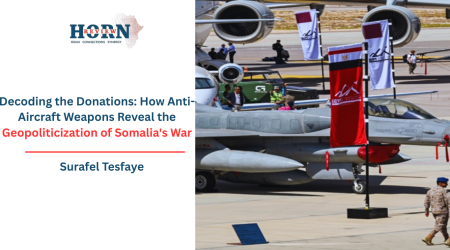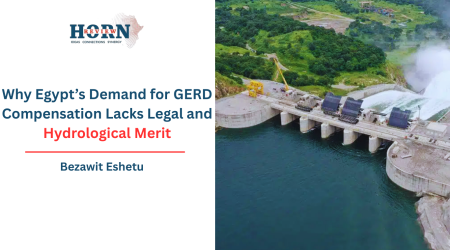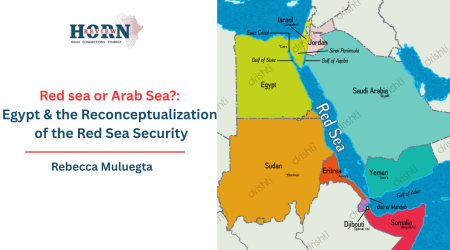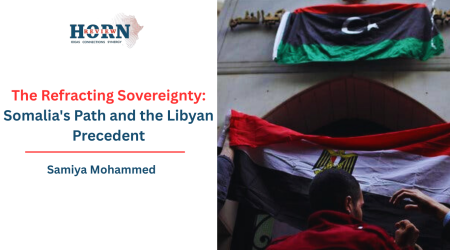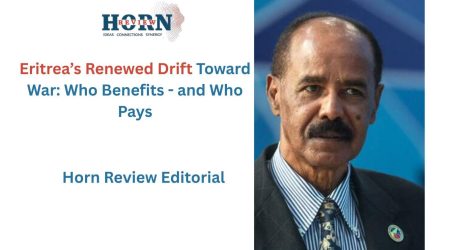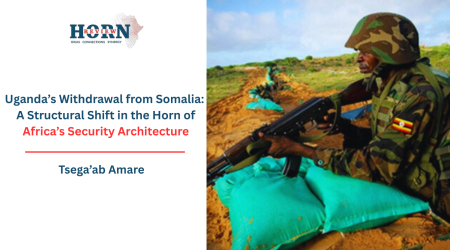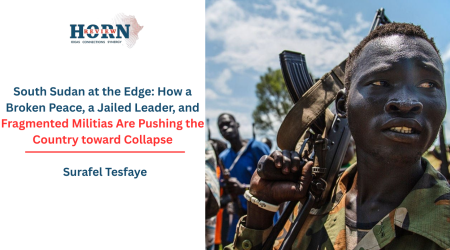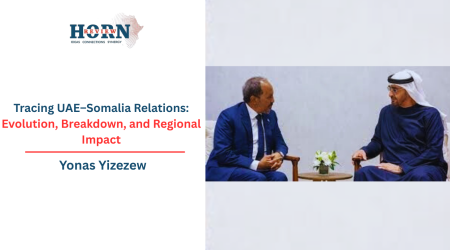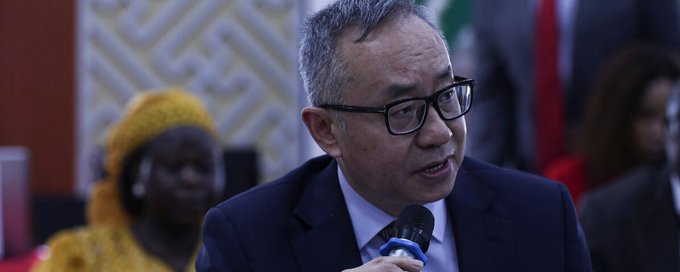
27
Jul
Emerging Geometries of Power and Multilateral Norms: The UN’s New Face in the Horn of Africa
By Blen Mamo
On 17 July 2025, United Nations Secretary-General António Guterres appointed Guang Cong of China as the UN Special Envoy for the Horn of Africa, marking an unprecedented milestone as the first Chinese national to assume this strategically significant post (United Nations, 2025). While the UN’s leadership has historically drawn from a diverse array of geographic origins, Cong’s elevation signals a pronounced recalibration of the institutional architecture – reflecting China’s transition from predominantly bilateral engagements to a substantive presence within multilateral governance in a region of escalating geostrategic importance.
Succeeding Ghana’s Hanna Serwaa Tetteh, Cong brings over two decades of seasoned experience across complex peace operations in South Sudan, Darfur, Lebanon, and Afghanistan, most recently serving as Deputy Special Representative and Deputy Head of the UN Mission in South Sudan (UNMISS, 2023). This professional pedigree, rooted in both deep regional familiarity and institutional acumen, equips him with a nuanced understanding of the interplay between sovereign prerogatives and the imperatives of multilateral peacebuilding.
China’s historical posture within the UN – as a permanent Security Council member – has been characterized by cautious engagement, often privileging bilateral state-to-state diplomacy. Cong’s appointment, therefore, constitutes a discernible inflection point, embodying Beijing’s strategic intent to articulate and operationalize its influence through the normative frameworks of multilateral institutions. This approach enables China to exert soft power not through coercive conditionalities but via the legitimacy conferred by the UN’s institutional mandate, thereby advancing a vision of sovereignty, development, and conflict resolution consonant with its diplomatic ethos.
The Horn of Africa, a crucible of geopolitical contestation, has attracted intensified attention from a constellation of external actors including Gulf states, Russia, the European Union, the United States, and China itself (International Crisis Group, 2023). In this context, Cong’s ascendancy to a high-profile UN envoy role carries profound symbolic resonance and practical implications. It may recalibrate regional perceptions of the UN, particularly among states historically skeptical of Western conditionalities and more receptive to China’s doctrine of non-interference and development-centric partnership (Sun, 2022). Nonetheless, entrenched political complexities and longstanding regional fault lines constrain the pace and extent of perceptual shifts.
This appointment also embodies the UN’s tentative but meaningful adaptation to an increasingly multipolar international order, challenging the West’s post-Cold War hegemony over senior diplomatic appointments traditionally leveraged to project Western normative frameworks under the guise of multilateral legitimacy.
While Cong’s tenure does not herald an outright overturning of the existing power hierarchy, it is emblematic of a gradual diffusion of influence within the UN system, incrementally decentering Western preeminence. This evolution raises salient normative questions concerning the durability and interpretation of foundational UN mediation principles – such as inclusivity, human rights, and democratic governance – as non-Western actors assume more prominent operational roles.
Far from a mere token appointment, Cong’s dual identity as a former Chinese foreign ministry official and an experienced UN operative positions him uniquely to mediate the fraught interface between the inviolability of state sovereignty and the exigencies of international norms. In a region acutely sensitive to external interference, such hybridity may afford him enhanced diplomatic dexterity.
More broadly, China’s trajectory reflects a paradigmatic shift from external influence exerted via financial instruments and alternative institutional platforms toward direct engagement with the core mechanisms of global governance. The integration of Chinese leadership at the envoy echelon may bolster the UN’s legitimacy amid changing power configurations but simultaneously tests its capacity to reconcile divergent diplomatic doctrines.
The appointment underscores an ongoing diversification of the UN’s leadership mosaic, mirroring a global governance landscape increasingly characterized by pluralism. Although Western influence endures, it must now accommodate competing normative paradigms emphasizing sovereignty, developmental pragmatism, and non-interference – principles that resonate with Beijing’s longstanding positions and, importantly, find selective consonance within the UN’s foundational charter.
Operationally, it remains axiomatic that no single envoy – regardless of nationality – can surmount the structural constraints that circumscribe the UN’s efficacy in fragile theatres: chronic underfunding, limited political leverage, and the prerogatives of host states. Yet Cong’s appointment may recalibrate the UN’s relational dynamics, engendering enhanced access and credibility with regional actors disillusioned with Western-centric conditionalities. This could precipitate a paradigmatic shift toward a development-oriented conception of peace and security, privileging state-led stability over externally imposed liberal state-building models.
The ultimate impact will hinge on the UN’s capacity to leverage Cong’s position to refine its modalities – prioritizing localized diplomacy, patient engagement with entrenched regimes, and integrative strategies bridging humanitarian, development, and political mandates. If successfully navigated, the UN could reaffirm its role as a neutral arbiter, adapting its modus operandi without diluting its normative commitments.
Viewed through a wider lens, this appointment encapsulates a fundamental transformation in multilateral diplomacy. China is no longer a peripheral actor shaping outcomes from the margins but a core constituent contesting the procedural and normative underpinnings of international governance. The UN, for its part, appears poised – albeit cautiously – to recalibrate its institutional ethos to reflect a more dispersed distribution of power and legitimacy.
For Western policymakers, these developments demand a strategic recalibration. Sustaining influence within multilateral institutions will require moving beyond entrenched networks toward coalition-building, operational excellence, and systemic reform. Engagement with China must be pragmatic – neither acquiescing to nor antagonizing its ascendancy – to safeguard the functionality, credibility, and inclusivity of the multilateral order.
Guang Cong’s appointment thus neither signals the eclipse of Western influence nor its unchallenged perpetuation. Rather, it inaugurates a phase in which the geometry of global leadership is increasingly polycentric. His tenure will serve as a litmus test for the capacity of emergent powers to contribute constructively to conflict resolution under UN auspices and for established actors to adapt to an evolving international milieu.
Ethiopia’s status as China’s most significant and steadfast regional partner in the Horn of Africa imbues Guang Cong’s appointment with particular resonance for Addis Ababa. As Beijing’s “all-weather friend,” Ethiopia has benefited from robust bilateral ties characterized by extensive infrastructure investments, trade relations, and political support. However, this privileged partnership exists within a broader regional tapestry where China also maintains pragmatic relations with Ethiopia’s adversaries, including Eritrea and Sudan, thus underscoring Beijing’s strategic balancing act aimed at preserving influence across competing Horn states.
In this context, Cong’s role as UN Special Envoy demands a delicate disentanglement of national affiliations from multilateral responsibilities. While his Chinese heritage and intimate understanding of Beijing’s regional priorities may afford Ethiopia enhanced access and subtle diplomatic leverage within the UN framework, Cong’s mandate compels impartiality and the pursuit of collective peace and stability objectives (United Nations, 2025).
Addis Ababa must leverage the potential for a more development-oriented and sovereignty-conscious approach to peacebuilding – aligned with Beijing’s philosophy – while pursuing a diversified regional strategy that balances its close ties to China with pragmatic cooperation across the Horn’s complex political ecosystem. This calibrated approach will be pivotal in advancing Ethiopia’s regional ambitions and securing durable stability (Sun, 2022; International Crisis Group, 2023).
Ultimately, Cong’s appointment presents Ethiopia with a strategically auspicious opportunity: a UN envoy whose intimate understanding of Chinese policy paradigms may engender a heightened receptivity to Ethiopia’s regional aspirations. Concurrently, Ethiopia must deftly engage with the envoy’s multilateral mandate, which necessitates equitable consideration of competing regional actors and adherence to the principles of impartiality. This dynamic invites a nuanced diplomatic posture – one that capitalizes on the conduit for deeper engagement while navigating the intricate architecture of multilateral peacebuilding and regional stability.
References
International Crisis Group. (2023). Horn of Africa: Geopolitical dynamics and regional stability. International Crisis Group Report.
Sun, Y. (2022). China’s engagement in Africa: Infrastructure, finance, and diplomacy. Journal of Global Affairs, 18(2), 45-60.
United Nations. (2025). Mr. Guang Cong of China – Special Envoy for the Horn of Africa. United Nations Secretary-General Personnel Appointments. Retrieved from
UNMISS. (2023). United Nations Mission in South Sudan – Annual Report. United Nations Peacekeeping.
About the Author
Blen Mamo is the Executive Director of Horn Review, an independent research and publication think – tank dedicated to political, security, and diplomatic affairs in the Horn of Africa. She is also a research associate at the Institute of Foreign Affairs, and the Executive Producer of the Strategic Dialogue podcast series, a collaborative initiative between Horn Review and the IFA.


